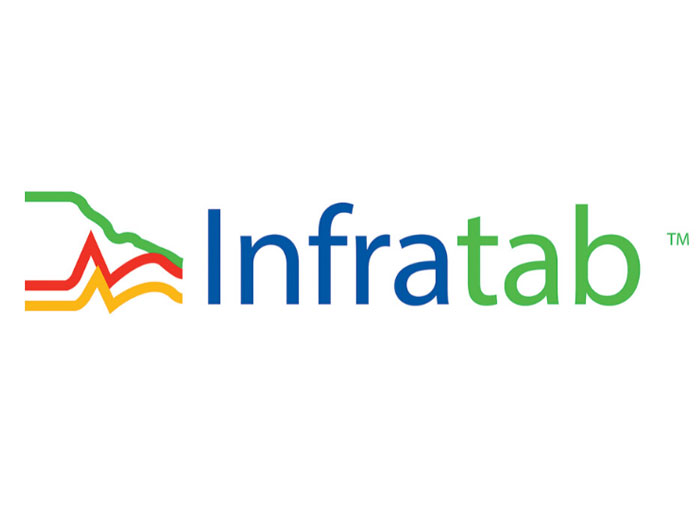Infratab Freshtime RF Sensor Blockchain Solution for Fresh Seafood Wins 2019 AIM Case Study Competition
November 7, 2019 | 4 min to read

Oxnard, California – Infratab, Inc. is pleased to announce its case study RFID Tags & Blockchain for the Seafood Cold Chain has been chosen as the top entry in the Blockchain category in AIM’s 2019 Case Study Competition. The winning case study examines Infratab’s project with researchers from the Laboratory of Food Chemistry and Technology, School of Chemical Engineering at the National Technical University of Athens (NTUA) to implement Infratab Freshtime, a condition-intelligent RF sensor blockchain solution, for a fresh fish producer and AB Vassilopoulos, the leading supermarket chain in Greece.
“We’re honored by AIM’s recognition of our work bringing blockchain security to cold chain monitoring” said Therese Myers, CEO of Infratab, “By providing access to perishables’ real-time shelf life status and creating unalterable blockchain records, Freshtime gives producers and retailers the tools they need to reduce product waste and ensure their customers get the quality they expect.”
In the winning case study, the challenge was that the producer and retailer would measure and record the fresh fish’s temperature manually at each step of distribution. If arrival temperature was found to be within the acceptable range, the fish’s shelf-life was assumed to be as expected and no corrective actions were taken. If a fixed expiry date had been exceeded when the fish was received at the supermarket, the fish would be tossed. This cold chain monitoring system, typical in most perishable supply chains, often results in unnecessary food waste or disappointed consumers.
To solve this problem, Infratab and NTUA implemented and tested Infratab Freshtime, a temperature monitoring tag and software solution, to provide real‐time shelf life status to product handlers. The solution utilizes dual RF (RAIN and NFC) temperature and shelf life tags, a mobile smartphone application to handle the tags, and a cloud database for data storage, reporting, analytics, and blockchain updates. The solution’s analytical model (validated by microbiological sampling conducted by NTUA researchers) predicts how much of the fish’s shelf life has been used and how much remains. This information is recorded in blockchain records and reported to handlers via alerts or when the tags are scanned with a mobile app on the handler’s smartphone.
“Infratab’s Freshtime solution provides a powerful monitoring tool assuring a reliable cold chain of highly perishable products,” said Professor Petros S. Taoukis, PhD, NTUA’s lead researcher on the project, “This toolset capitalizes on our kinetic models for shelf life prediction and applies them in the real food chain.”
About the 2019 AIM Case Study Competition
AIM, the trusted worldwide industry association for the automatic identification industry, providing unbiased information, educational resources and standards for nearly half a century. Presented annually by AIM, the Case Study Competition recognizes those who have developed and delivered compelling solutions that contribute to the growth and advancement of automatic identification and data capture (AIDC) through innovation and technologies which provide benefits that decrease risk, increase the demand and accelerate the advancement and adoption of automatic identification around the world. For more information visit aimglobal.org.
About Infratab
Infratab, Inc. is the leader in condition intelligent RF sensor solutions for monitoring, tracking, and tracing perishables and items with measurable wear and tear. Infratab designs, makes, sells and services tags, edge software, cloud services, and analytics. These products are marketed under the brand name Infratab Freshtime. For more information visit infratab.com.
About the National Technical Institute of Athens (NTUA), Laboratory of Food Chemistry and Technology
NTUA is the leading academic institution in Greece, ranked in the top 400 worldwide. The Laboratory’s research areas include the kinetic modelling of food deterioration during pre and post processing and quality and shelf life predictive modeling. Led by internationally-renowned food scientist Professor Petros S. Taoukis, the Laboratory has also pioneered the application of time temperature integrator (TTI) smart labels to the food cold chain. Working with Professor Theodore Labuza at the University of Minnesota he pioneered the principles and application of Time Temperature Integrators (TTI) smart labels aiming to develop optimal systems of food cold chain monitoring. He coordinated since and participated in several multinational projects on the food chain management and optimization. Results of his research has been published in scientific books, peer reviewed scientific journals (130), book chapters (37) and scientific conference proceedings (>420), with more than 3849 citations (h-index: 35) according to Scopus, and more than 6000 citations (h-index: 43) according to Google Scholar. For more information visit taoukisfoodntua.net.
About AB Vassilopoulos
Well into its 80th year of operation, AB Vassilopoulos is still leading the Greek food retail sector. The company continues to follow a steady path of growth, operating 478 stores throughout the country, while employing 14.132 associates.
AB Vassilopoulos is distinguished for its wide range of products focusing on the quality, the providing of excellent services and the competitive price-range, while establishing long-term relations with its customers, suppliers, partners and associates. Furthermore, AB Vassilopoulos significantly contributes to the life-quality of the local communities in which it operates and to Environmental protection, through the design and implementation of integrated CSR programs.
